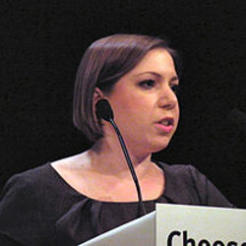None of the witnesses giving evidence to the committee examining the draft Protection of Charities Bill yesterday supported the idea of requiring people to get training or gain a basic qualification before being allowed to become a trustee.
Committee member Sarah Teather MP (pictured) asked whether, if most instances of non-compliance with charity law are honest mistakes, the Charity Commission ought to do more work around the minimum requirements of being a trustee.
But the regulator’s director of legal services Ken Dibble said: “It's difficult - to set some artificially imposed standard might deter people from coming forward. Any criteria might deter the very people we want to take up trusteeship. We believe this bill is the right approach, rather than setting an artificial and difficult standard in legislation.”
And Victoria Keilthy, director of private and third sector delivery at the National Audit Office, said: “I understand the issue it is trying to get at and in principle it would improve the knowledge of some trustees. But the downsides would have to be explored and considered before it went ahead.
“Requiring trustees to do training or get a qualification is likely to put some people off becoming trustees, and a lot of charities struggle to find trustees. It could also put off younger people and those who weren’t successful in formal education.”
Keilthy added that the proposal would create more work for charities to check their trustees had done the requisite training or obtained the kitemark, and it would change the nature of the Charity Commission’s role: “The Commission regulates charities, it doesn't license trustees.”
NAO found five barriers to effective charity regulation in 2013
Keilthy said the NAO identified five barriers to effective regulation at the Commission during its investigation in 2013: its culture and overall approach to regulating; lack of resources; poor use of its own data; weaknesses in sharing information, and deficiencies in its legal powers.
“By no means do I think the weaknesses we found were just down to funding,” she said. “The regulatory approach and culture played a very large part, I believe.
“We found over-reliance on trustee assurances and a reluctance to use the statutory powers it had. The Commission was much more likely to offer advice and guidance even when people were deliberately abusing their charitable status. A number of investigations were closed with just advice and guidance to trustees - including the Cup Trust.”
In response to a question from MP Sarah Teather about whether she had any concerns that the Commission would use any new powers inappropriately against charities who make honest mistakes, Keilthy said: “No, the Commission has already said it will still seek to assist charities where honest mistakes are made.”









